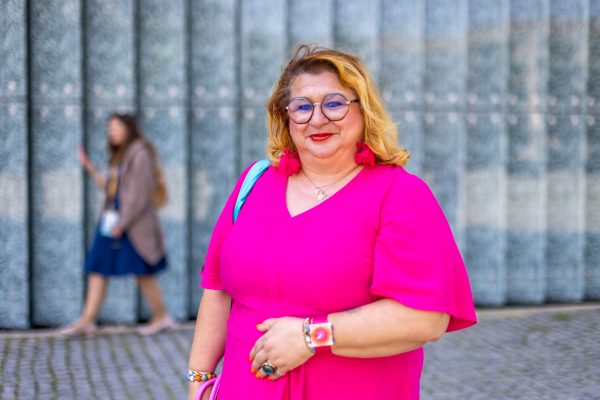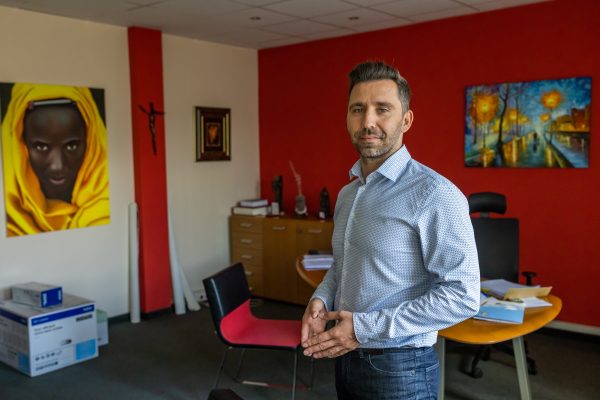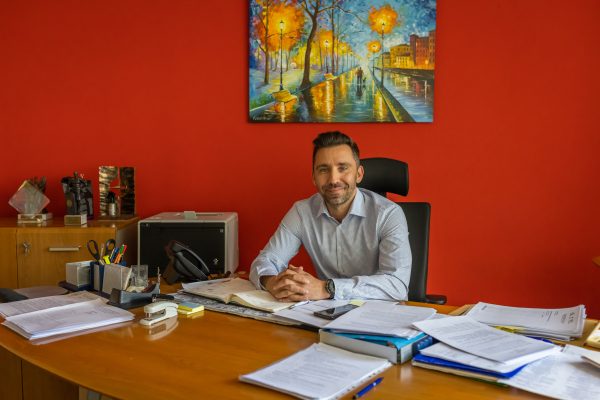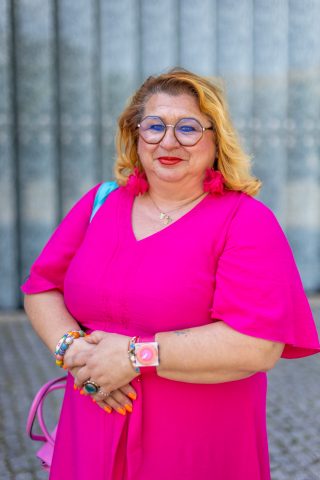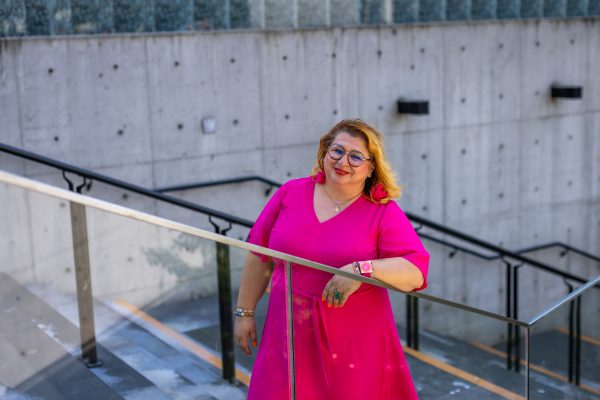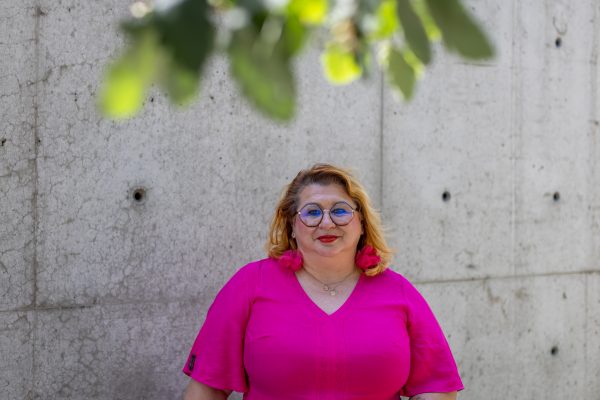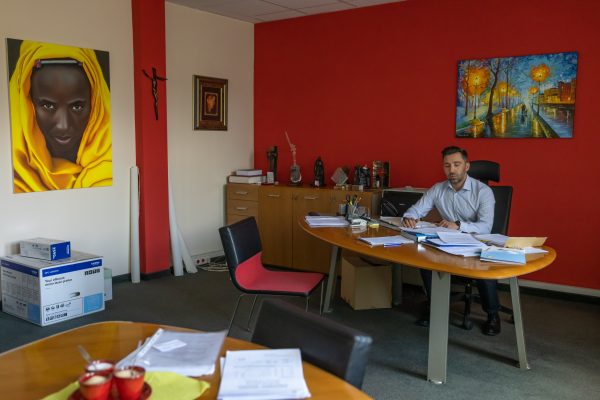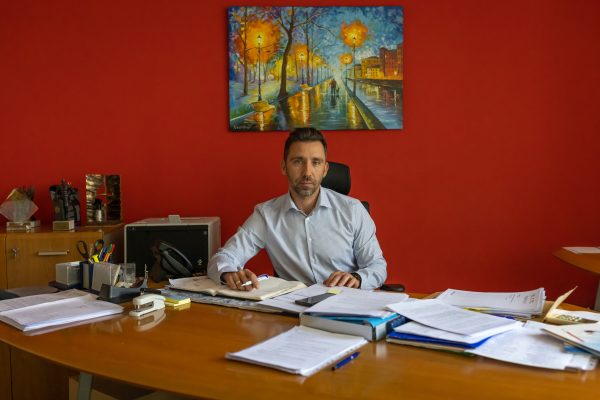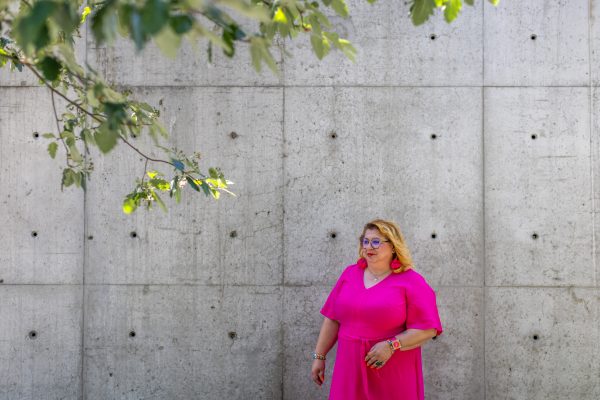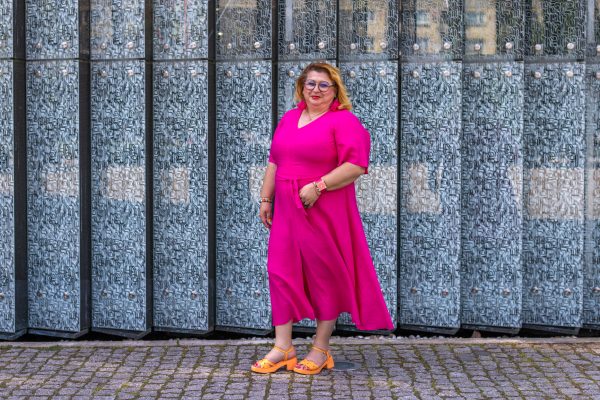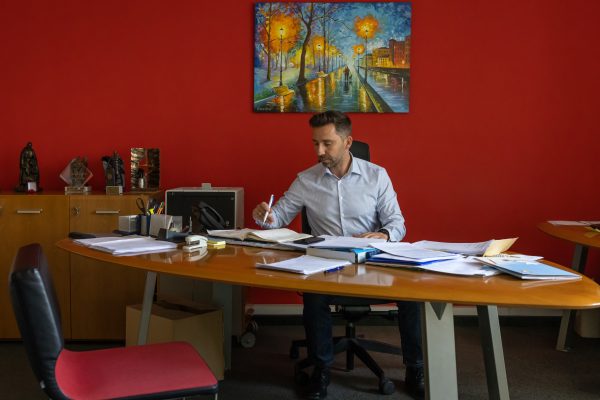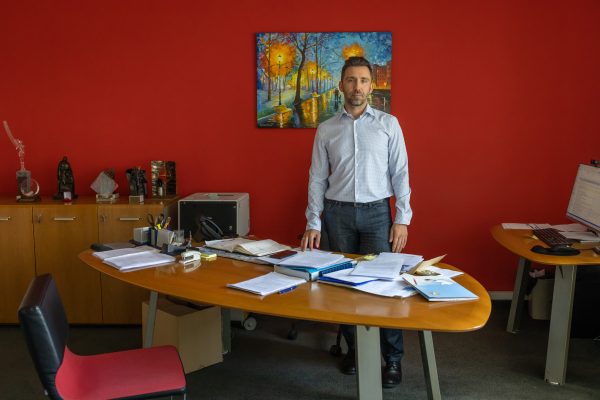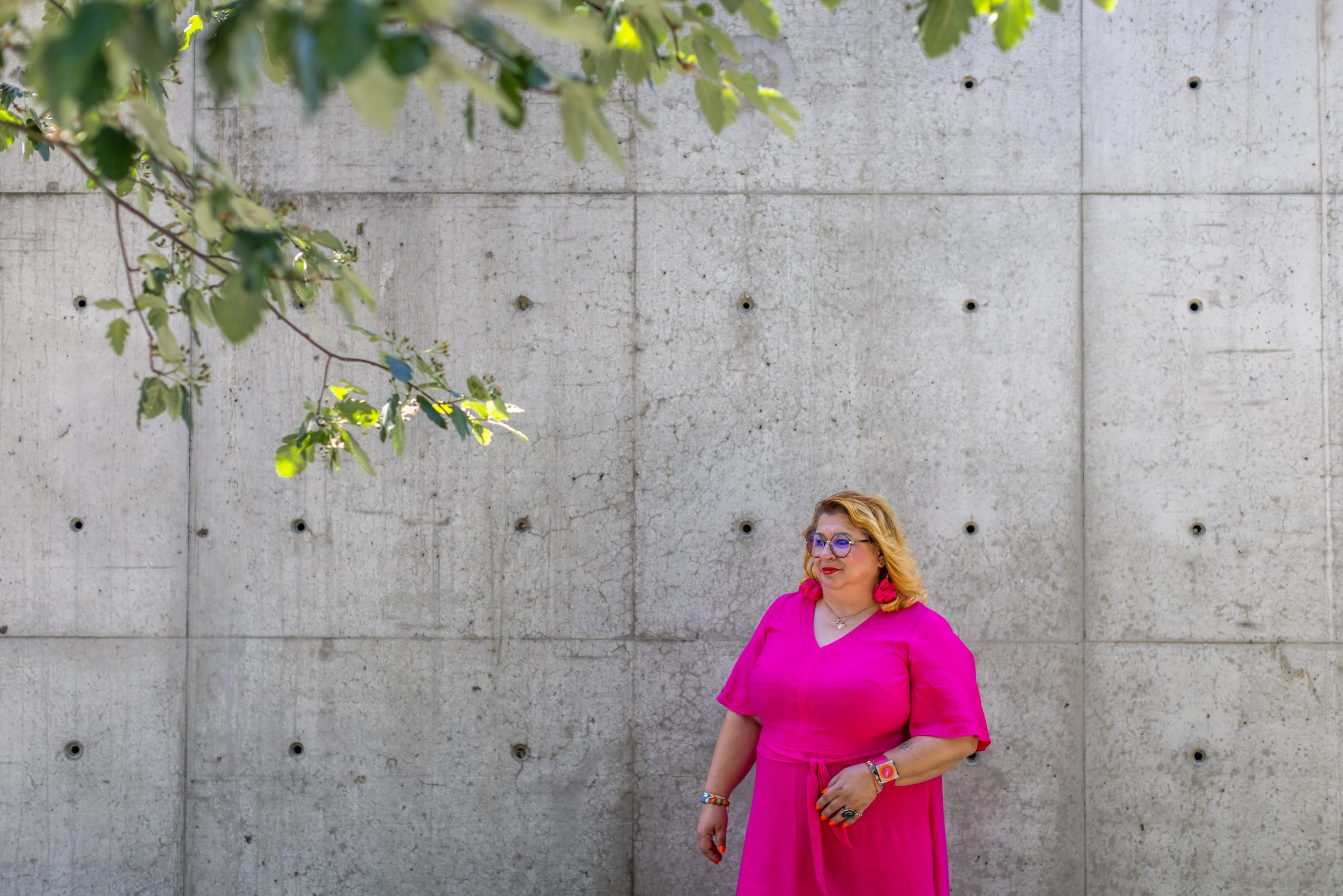
Healthcare is a very difficult department. Managing the expectations and needs of people from various circles – patients, doctors, medical staff – that’s a very fine line. The result is problems that we have all experienced – a long waiting list to see doctors, services not being performed, information not being provided. Patient organisations try to resolve these issues. Due to this grass roots civic movement organised by patients, the situation as regards treatment in Poland is changing, and is heading in the direction of European standards.
It usually starts the same way. Someone is ill – perhaps with cancer, diabetes, or rheumatoid arthritis, or a rare disease. They go to a doctor, and sometimes one doctor after another. Sometimes, the diagnosis goes on for a really long time, sometimes treatment can begin quickly, and other times it has to be fought for. The state healthcare service, along the way private consultations, operations paid for out of one’s own pocket. Suddenly, someone’s whole life begins to revolve around illness. A patient who has never been an activist suddenly becomes a citizen who wishes to defend their rights and speak on behalf of themselves and other patients. This is the story behind most of the patient organisations in Poland. According to a report produced in 2018 by the Instytut Praw Pacjenta i Edukacji Zdrowotnej (Institute for Patients’ Rights and Health Education) and Stowarzyszenie Klon/Jawor (the Klon/Jawor Association) Patient Organisations in Poland. Structure. Activity. Needs, they are usually formed by women. These are organisations that change reality, step by step, as regards treatment of various medical disorders in Poland.
That’s just the way you are, girl
The story of Lucyna Jaworska-Wojtas is no different.
– I developed endometriosis when I was 12. I got my diagnosis when I was twenty-something, and that was only because I registered with the Endometriosis Foundation of America and sent them my test results. Polish doctors did not detect my illness until I was 28, and removed a tumour – Jaworska-Wojtas recalls. – I have basically been dealing with endometriosis all my life, and I am not reconciled to the fact that I live in a country where there is no one to turn to, in the XXI century. I have had 16 operations, and have lost my right kidney, womb, and ovaries. Further operations await me, but the entire treatment, physiotherapy, and psychological treatment is on my shoulders. I have to pay for everything, even though, it needs to be remembered, I work and pay taxes in the same way as others.
Jaworska-Wojtas stresses that endometriosis is a surreptitious disorder. This is not just because of the symptoms – the mucous membrane, which should be in the womb, embeds itself in other organs and becomes hormonally active, forming tumours and infections. Endometriosis can develop in the abdominal cavity – it can bind it into a single cocoon, in the chest, lungs, even the eye, ear, tongue, or brain. What makes it surreptitious is that only doctors who are persistent and trained in this field can recognise it. There are really very few in Poland. Only one hour is devoted to this subject in medical school, knowledge of it is not required in examinations, and doctors who do not have knowledge about this disorder are dismissive of the symptoms. They tell young girls who have Endo that they are being hysterical, they need to see a psychologist, that is just the way they are, and menstruation has to be painful. For this reason, on average, diagnosis of this illness in Poland takes eight to twelve years, and in this time, endometriosis develops on a number of organs. Often, it will begin to be accompanied by other autoimmune disorders. In many cases, it also causes awful pain that is so terrible that patients consider suicide.
Lucyna is an activist by nature. In the Poznań police force, where she works, she is head of the civil employee unions. Her life motto is “Always with people, around people, and for people”, and she could not shrug off the issue. The first measures she took were on the Internet. She gathered a group of women who also had endometriosis, and they formed an association. She wrote to first lady Kwaśniewska about the matter, and talked about the little-known disorder on the TVN programme Uwaga. Finally, once she had raised her son, she opened the foundation “Pokonać endometriozę” (Overcome Endometriosis) in 2018. Apart from her, president of the foundation, the members of the board are: Marlena Kaźmierska, Aleksandra Bielak and Kasia Ploch, but there are also numerous ambassadors and volunteers in the foundation. They live in various places in Poland, but what they have in common is that they all have Endo, and they each wish to change the attitude towards the disorder and the treatment given in Poland.
– Our aim is firstly to raise awareness among doctors and patients, and secondly to force the Ministry of Health to determine the cost of the services provided with respect to endometriosis and create holistic centres for diagnosis and treatment of the disorder in Poland – Lucyna Jaworska-Wojtas explains. – We want the state to provide training for specialists: doctors, diagnosticians, dieticians, physiotherapists, psychologists. The aim is for a woman who has endometriosis to feel that she is provided with care in Poland throughout her life, from the moment of diagnosis. We want a DiLE – Karta Diagnostyki i Leczenia Endometriozy (Endometriosis Diagnosis and Treatment Card) to be created, based on the DiLO – Karta Diagnostyki i Leczenia Onkologicznego (Cancer Diagnosis and Treatment Card), fought for by cancer patients.
Umbrella organisation for patients
– How many patient organisations are there like the Fundacja “Pokonać endometriozę”? – I put the question to Igor Grzesiak, vice-president of the Instytut Praw Pacjenta i Edukacji Zdrowotnej. – A few years ago, working with the Stowarzyszenie Klon/Jawor, we did research into this subject, and found that there are approximately 1500 registered organisations. Probably around 1000 of those are active. I think it is similar today. This number is due to the fact that most of them deal with a single disorder. The number of rare disorders alone is in the thousands, and it needs to be remembered that there are common disorders – cancer, diabetes, circulatory system disorders. Some organisations combine to form federations when acting to treat a certain disorder. These are organisations such as Polska Koalicja Pacjentów Onkologicznych (Polish Cancer Patients’ Coalition), Ogólnopolska Federacja Onkologiczna (National Cancer Federation), Krajowe Forum na Rzecz Chorób Rzadkich Orfan (Orfan Rare Disease National Forum), organisations for patients with asthma or allergies, and Amazonki. They realised that they needed to unite because they would be more effective working together.
– And do you represent all of them?
– No. We work with them, and together we conduct projects and awareness campaigns. We are an information-sharing platform, and have a database of organisations on our website – Grzesiak explains. – Although sometimes we are treated as representatives of organisations due to the name. Likewise, we are blamed for the healthcare system in Poland, because people think that we are the Patient Ombudsman attached to the ministry, but we are a CSO, like other patient organisations. Why are patient organisations important? In theory, there is a lot a patient in Poland can do, and everyone points out that the patient is at the centre of the healthcare system. Everyone knows how the system works in practice – waiting lists to see specialists, medicines are not always reimbursable, the snail-paced functioning for example of rehabilitation- or disability-related systems, situations in which there is treatment but no diagnostics or rehabilitation. To be fair, however, healthcare is one of the most difficult departments. Managing the expectations and needs of people from highly diverse circles – patients, doctors, medical staff – that’s a very fine line.
The Instytut Praw Pacjenta i Edukacji Zdrowotnej was created 20 years ago by the Reverend Dr Arkadiusz Nowak, who is president of the institute still today. Since the outset, his aim has been to improve the healthcare system. From the beginning, this meant efforts to secure a bill on patient rights and creation of the Patient Ombudsman. In addition to that, the IPPiEZ deals with awareness of health issues and works to integrate the patient organisation community. This is a significant part of his activity.
– For years, we have formed the Forum Organizacji Pacjentów (Patient Organisation Forum) in which we invite any interested organisations to Warsaw. They send us questions beforehand, and we submit them to the minister of health, head of the NFZ (National Health Fund), and the Patient Ombudsman. We provide the responses during the forum. It has been possible to bring about many changes in the Polish health system due to entering into this dialogue – Igor Grzesiak says. – We create a kind of informal umbrella over patient organisations and a place for sharing knowledge. We also try to make the patient organisation communities stronger and help them with management.
An NGO is also a business
Because the truth is that operating a non-governmental organisation (NGO) is not very different from running a business. Of course, the aim is different – as it is not profit, but to make changes to certain situations, but, like in a business, an NGO has to do fund-raising, planning of activities, personnel management and evaluation of their performance, and implementing legislative changes.
Many Polish social organisations do not have this knowledge, and there are insufficient funds to introduce various solutions. Often, the people that found them believe that it is sufficient to unite people around a deserving cause, and the rest will take care of itself, but after a few months, a year, or two years, spontaneous action of that kind runs out of steam. Also, many people work in the organisations on a voluntary basis, and in the long term this can be difficult, because they usually work as well, and that is a living that requires their time and energy.
For this reason, the Instytut Praw Pacjenta i Edukacji Zdrowotnej provides patient organisations with various tools and experts from the statutory fund. Social organisations that help patients can receive free services for which they would normally have to pay; some examples are computer graphics, web design, legal counsel, IT, and translators. The Instytut also coordinates projects to help patient organisations become better organised at work and better at managing the human resources that they have.
One of these was the “Koalicja dla zdrowia” (Health Coalition), operated in cooperation with the Federacja Pacjentów Polskich (Polish Patients Federation) and the Polska Koalicja Pacjentów Onkologicznych, and funded under the Active Citizens Fund – National Programme. The main principles of the project were very simple. The Instytut conducted a due diligence review in certain organisations to assess compliance with formal and legal requirements. This made it possible to identify the main problems and then create the means of dealing with them, in the form of governance standards and a self-assessment survey to determine the areas of operation in which the organisation needed to improve. All of this was done to provide support in the organisation’s day-to-day work and the competences of employees in this regard. One very important element, for example, was legal aid provided for organisations, to make their activities GDPR compliant.
– From our point of view, training on drawing up the organisation’s plans was very useful. Now we have a schedule listing all of the possible grants and projects, which, thanks to this, we have an opportunity to conduct – Lucyna Jaworska-Wojtas of the Fundacja “Pokonać endometriozę” says. – This made our daily activities much more effective, and now we organise significantly more events.
– The self-assessment survey, to determine whether we follow certain practices in the organisation, was also a good idea, adds Aleksandra Bielak, a member of the board of the foundation. – Meanwhile, in the recommendations made for the organisation, there was a lot about voluntary work and how to organise it. We made use of that, we have a large number of volunteers, and that is very helpful because we are active in various cities. We created a database of volunteers and began to sign agreements with them, because that is the proper practice. We also started providing training for ambassadors. We have now properly organised the issues regarding the GDPR.
– Now we have a feeling of being more professional – Lucyna Jaworska-Wojtas ends.
The Rzeszów Fundacja “APROBATA” (Approval) representing patients with rheumatic disorders, also took part in the project. – We were glad to have a due diligence – president Jolanta Fień says. – As a result, we corrected our statute and drew up, with the help of the Instytut Praw Pacjenta i Edukacji Zdrowotnej, GDPR documentation, which we use continually. It may not sound very impressive, but these things are needed, so that we are seen as credible by institutions and people awarding grants, and as fulfilling various formal requirements.
The Fundacja “APROBATA” was created due to Jolanta’s needs of the heart and her personal story. When the foundation president was 23, and she had had her second child, she developed rheumatoid arthritis. – Although I was young, my joints were swelling, and I suffered from joint stiffness in the morning and limited motion, which is typical for this disorder. I had a three-month-old son, and was highly restricted in the way I functioned – Jolanta Fień recalls. – At that time there was no organisation in my city to help people with that disorder, but I came across the Stowarzyszenie Reumatyków i Ich Sympatyków im. Hanki Rzechowskiej (Hanka Żechowska Association of Rheumatics and Their Supporters). I wrote to them in Warsaw and opened a local office for the association. It operated for five years, after which, to expand the capabilities with regard to projects, I set up the Fundacja “APROBATA”.
The foundation focuses on helping people with rheumatic disorders. Rheumatoid arthritis, Jolanta’s condition, is one of the most common. Others include lupus, juvenile idiopathic arthritis, which children can also get, psoriatic arthritis, gout, and Sjogren’s syndrome, which causes dry eyes and mouth. If not treated, they can lead to permanent degeneration, and many lead to limited motion or disability. They also involve pain.
– Fortunately, the range of biological medicines available to treat them is constantly growing – Jolanta Fień says. – On the other hand, there is limited access to them, because there are few doctors that conduct tests of that kind, and clinics that provide treatment programmes. Meanwhile, there are huge waiting lists and times. This means that we have a lot to do to help patients and their families.
Jolanta’s daughter Ewelina is on the board of the foundation with Jolanta. Like her mum, when she was 23, and had had her second daughter, she caught an autoimmune disease – multiple sclerosis. Today she is getting treatment, functions well, works, and has had a third child.
Fundacja “APROBATA” is active in its city to help people with rheumatic disorders and disability. It conducts awareness campaigns and integration trips, and took immediate action when the local hospital stopped treating people with rheumatic disorders during the pandemic. It recently joined the European Disability Forum in Brussels. People from Rzeszów call the foundation when someone needs a wheelchair or has questions about treatment. The foundation members also work on the Patient Ombudsman helpline. “APROBATA” also produced, based on US models, a prototype for a trolley for doing shopping for people with children with disabilities. Unfortunately, there are no funds to pursue it. As in many other patient organisations, insufficient funds are the main problem. Jolanta and Ewelina work pro bono, after work and at weekends, and are assisted by volunteers. For this reason, any assistance or services, such as those under the “Koalicja dla zdrowia” project, are important support for them.
– This project not only provided support for organisations in daily operations; it was the next step towards consolidation and empowering the patient organisation community, which, as an institute, we have been working to do since the beginning – Igor Grzesiak stresses. – We strive for this community to have an impact on initiatives and changes in the way the healthcare system is organised in Poland. This is why it was so important from the point of view of the patient organisation community that the minister of health create the Council of Patients’ Organisations of the Minister of Health. The council has a true impact on decisions concerning patients, because the members submit motions and produce opinions on legislative proposals or decrees, and draw up their own standpoints or recommendations. There are people from many patient organisations on the council. A requirement for joining the council was a declaration of compliance with the Charter of Good Governance Principles of Patient Organisations (drawn up by the Ministry of Health as a formal requirement for joining the council). The charter lays down the rules for organisations’ activities, (such as meeting patients’ true needs and ethics) governance, and working with institutions, state organisations, and pharmaceutical companies. It was drawn up on the basis of the due diligence conducted in the “Koalicja dla zdrowia” project.
The architects conducted a training course on the charter and applying it.
A person up against a wall
Piotr Fonrobert, vice-president of the Polska Koalicja Pacjentów Onkologicznych (PKPO) (Polish Cancer Patients’ Coalition), a partner in the project, believes good governance of a patient organisation is extremely important. For this reason, initiatives such as the “Koalicja dla zdrowia” are very important because they help with development and more effective operation. The PKPO took part in a number of training sessions on governance, and this project helped organisations refine their models for governance, regulating payment for tasks, and relations with the community – sponsors and state institutions, including for instance the Ministry of Health and the Patient Ombudsman.
The coalition was set up by people with experience of cancer. This is an umbrella organisation that encompasses more than 40 smaller social organisations dealing with cancer disorders. Due to its size, it has a greater capacity to convey a message and influence people in government.
– A person is dealing with the worst illness possible, which is cancer, commonly believed to lead to quite a quick demise, with indescribable pain along the way. So they come up against a wall and are very frightened – Fonrobert says. – the coalition was set up to help patients and their families deal with this fear. Our principal aim is to provide support for an individual patient and make the disorder as easy as possible for them.
In what way? For example by helping them get on to the waiting list for healthcare services. In addition, the members of the coalition continually track medical advances and act systematically, attending Sejm and Senate health committee sessions or taking action in the Council of Patients’ Organisations of the Minister of Health. They lobby for innovative drugs to be made available and for a reimbursement system that meets European standards (today there are cases in which a patient is entitled to reimbursement for medicine for example until they reach eighteen, and no longer, although they continue to be ill, or similarly absurd situations).
– the coalition also takes care to ensure that patients are informed regularly of new developments and opportunities – Piotr Fonrobert stresses. – We publish the quarterly “Głos pacjenta onkologicznego” (Cancer Patient Herald”). I am very pleased to see, sitting in a waiting room, that patients pick up the copy lying in reception and read it. Often, readers write or call us to say what topics they would like covered. A cancer patient is increasingly well informed, and discussions held while waiting outside surgeries are completely different to what they used to be, with opinions that are much more fact-based, and much less fear about the future. I remember after my first cancer operation, opening my eyes and thinking that a miracle had occurred, because other patients had told me that I had no chance of surviving. That would probably not happen today, I would be taken into the operating theatre without any unnecessary trepidation, and that is also due to the work of organisations like us. In fact, we constantly have something to do, due to new tests and needs. But I have a very firm impression that if it hadn’t been for that grass roots civic movement, we would be a long way behind, in many areas, compared to what is available today – he summarises.
Project „Coalition for Health” run by Institute for Patient Rights and Health Education was conducted using funds from the Active Citizens Fund – National Programme funded by Iceland, Liechtenstein and Norway using EEA Funds.
Text: Agnieszka Wójcińska
Photo: Anna Liminowicz
The report was published on Onet.pl
